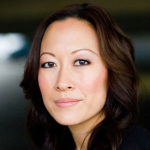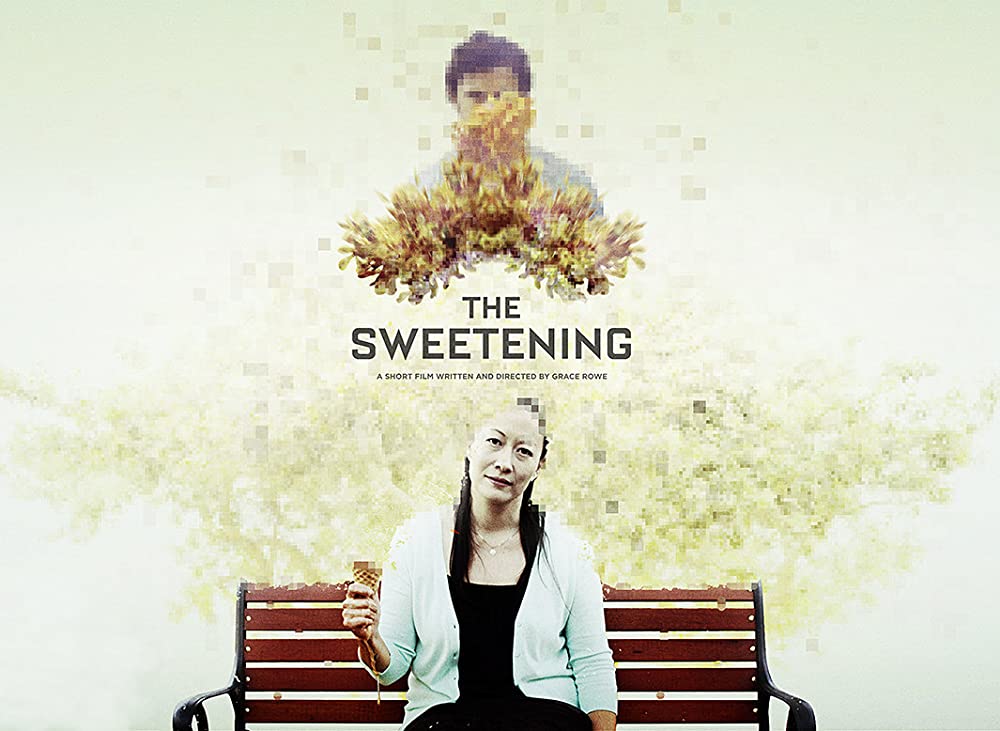
Grace Rowe
Grace Rowe is an independent writer, actress, and filmmaker. Her first short film, that she wrote, produced, and acted in, entitled “American Seoul,” was based on her award-winning feature-length screenplay of the same name, and has played at over a dozen film festivals worldwide. Soon after, she wrote, starred in, produced, and co-edited the feature-length film, “I Am That Girl,” which won numerous accolades including the Best Actress Award for her performance in the film by the Yosemite International Film Festival. Grace was also nominated for the New Visions Award for her YA novel, “Pure Descent,” about the future of race in America, and is currently working on a new television series idea. Some of her recent acting credits include “Backseat,” starring Christian Bale and Amy Adams, “Black-ish,” “Modern Family,” and “Brooklyn Nine-Nine.” Grace lives in Los Angeles with her husband and two dogs.
Q & A
If the world you created in your film became a reality, is that a world you would want to live in? Is there a Sci-Fi world you’d buy a one-way ticket to?
The world I created in “The Sweetening” is basically the world we live in now. In many ways, I love living in this time period because I grew up without the mass of technology which I’m now immersed in. I had a pretty innocent childhood in which I played outside a lot (and in arcades!), and I didn’t have to worry about being cyberbullied. As an adult, I love the convenience of technology, and I’m constantly amazed by all the things humans can create. On the other hand, I’d love to live in a world where racism, sexism, poverty, and senseless violence doesn’t exist, which absolutely sounds like science fiction.
Name a Sci-Fi character you relate to on a spiritual level? Who is your Sci-Fi spirit animal/spirit alien?
I’d say Ripley (Sigourney Weaver’s character) from “Alien.” People doubted her on so many levels, and yet she was a fighter. She also knew how to kick ass and never let fear get in the way of her goals.
Friend or Foe: humanoid robots with advanced artificial intelligence? What if robots start making their own Sci-Fi films? Will you support them in their endeavors?
If they’re good films, I’ll watch them. But the film I saw created by an A.I. was pretty bad. Elon Musk said we need to have the government put regulations in place now to make sure A.I. doesn’t take over and destroy us, even if unintentionally. I trust he knows more about the subject than I do, and we all know how slow our government works. I do find it super creepy that some robots resemble humans so realistically. I wish they would all just look like C-3PO.
In 1996, Bugs Bunny recruited Michael Jordan and Bill Murray to form the greatest basketball squad of all-time, the Tune Squad; you’re Bugs, who’s on your Sci-Fi Tune Squad?
I’d pick Sarah Connor, Lisa (from “Weird Science”), and Darth. I have a crush on Darth.
You’ve gotta go through some bad ideas to get to the good ones. Tell us one of your bad ideas. How do you get past the bad ones to find your spark?
I can’t tell you any of the bad ones because they’re actually good-bad ones that could end up as cult classics! But usually, when they’re not very good, I realize it the morning after I’ve written or brainstormed it, and I’m easily able to move on to something else. It’s good to keep those weird/bad ones around to remind you where your mind was at a specific place in time. I find that a lot of the bad ideas are often just mediocre ones that need some TLC. The question is whether or not you care enough about those ideas to make them great.
Do you consider yourself part of a sci-fi community? Or when your brain is in the future and your body’s in the present, is that isolating?
I think of myself as part of the sci-fi community in that a lot of what I write is sci-fi. But there are people I know who are much more involved and knowledgable about the sci-fi world than I am—my sister, for example, is a big sci-fi geek in that she’s read a ton of sci-fi novels, ever since she was a kid. I like to imagine what the future might be like, and I like to write about it. I think the part that can be isolating is the amount of time I spend alone on my computer, just writing, but it also gives me a lot of personal satisfaction and joy.
Do you consider yourself more of an analog or digital person? What kind of balance do strike between the two? Is there a disconnect between the technology you make films about and the technology that you make films with?
I’m definitely a digital person. I’m a computer geek and I’ve self-taught myself a lot of things, from film editing to motion graphics, to basic coding and sound design. There is a strong connection about the technology I talk about and the technology I use. I’ve written about things that I imagined would be around in the future, only to find out that they are launching these products today. Everything is now. Anything you can imagine probably already exists.
When you’re creating the props and sets that make a new world, where do you look for inspiration? How do you create objects that are relatable but unfamiliar?
For “The Sweetening,” I discussed in detail with my cinematographer and my production designer how I wanted the world to look. Since it takes place in the very near future, I wanted to make sure it didn’t look too sci-fi. At the same time, I knew I wanted the A.R. contact lenses to look futuristic, so I did some research on the internet and found the prototypes that they’re creating now. I then worked with the visual effects designer who came up with the actual design.
Lightning round: Star Wars or Star Trek? Philip K. Dick or William S. Burroughs? Practical or CGI? Dystopia or Utopia? Post Apocalypse or Pre Apocalypse?
Star Wars. Philip K. Dick. Practical in combination with CGI. Utopia as Dystopia. Pre Apocalypse. Because I want the world to win.


